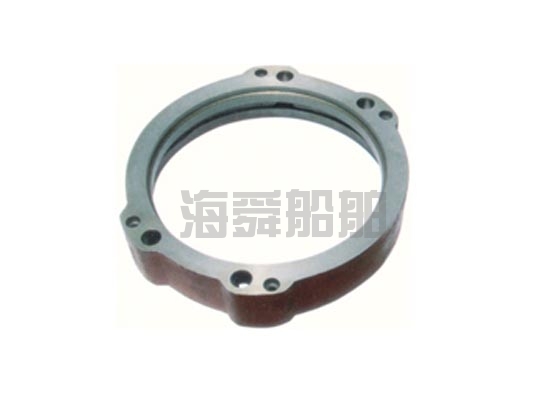Welcome to Zhenjiang shun sea Marine equipment co., LTD. website!
![]() 24-hour service hotline.:86-0511-88891886
24-hour service hotline.:86-0511-88891886
Welcome to Zhenjiang shun sea Marine equipment co., LTD. website!
![]() 24-hour service hotline.:86-0511-88891886
24-hour service hotline.:86-0511-88891886
Contact person : Dai yuejun
Tel: 86-0511-88891886
Sales Tel: 86-0511-84568660
86-0511-84565880
86-0511-84566886
fax:86-0511-84562662
Add: No. 8, YiLe Road, Dantu New Area ZhenJiang City.
Postcode :212000
E-mail :sales@cncyj.com
http://en.cncyj.com
Analysis of common failures of exhaust valve of marine diesel engine parts
The exhaust valve burnout is the most common failure of the exhaust valve. The main reason is that the exhaust valve is not tightly sealed, causing high-temperature gas leakage, causing serious overheating, and even melting through metal materials.
The main reasons for the poor sealing of the exhaust valve are as follows:
(1) Due to the different shapes and thicknesses of different parts of the valve disc, different heating and heat dissipation conditions, the temperature distribution on the circumference of the valve disc is uneven, and the center temperature is higher than the surrounding temperature, resulting in a temperature difference in the radial direction of the valve disc, which is too large The temperature difference will cause the deformation of the valve disc and lead to air leakage.
(2) The impurities contained in marine fuel oil are deposited on the valve disc and valve seat sealing cone of the exhaust valve into a layer of glassy harder and more brittle substance mixed with carbon particles after various complex thermal processes in the combustion chamber. Mixed with sodium sulfate, calcium sulfate, iron oxide and other substances. When the thickness of this layer of glassy deposits is too large, cracks will occur under the impact force when the valve is closed, and will develop into peeling after repeated impacts, thereby forming a high-temperature gas jet channel and burning the valve.
(3) The hardness of the sealing cone of the ordinary exhaust valve is not very high at working temperature, and the deposited hard combustion product particles can cause pits on the sealing surface under the impact of the closed valve, thereby forming air leakage.


Tel: 86-0511-88891886 E-mail:sales@cncyj.com